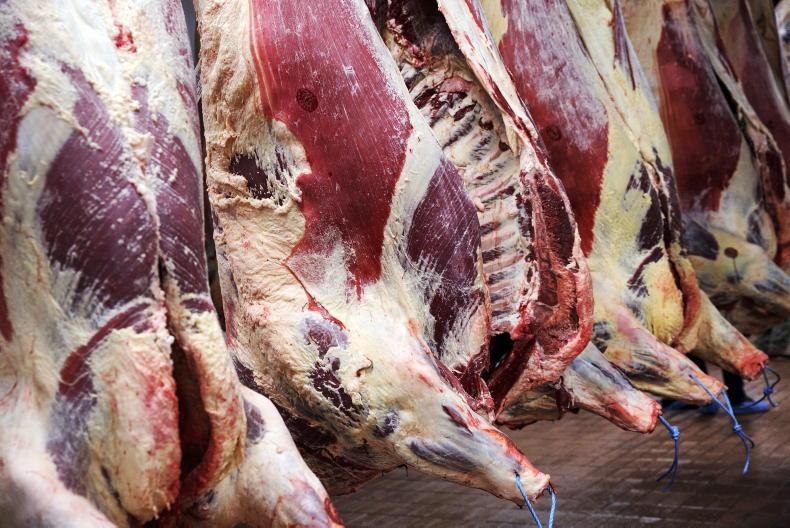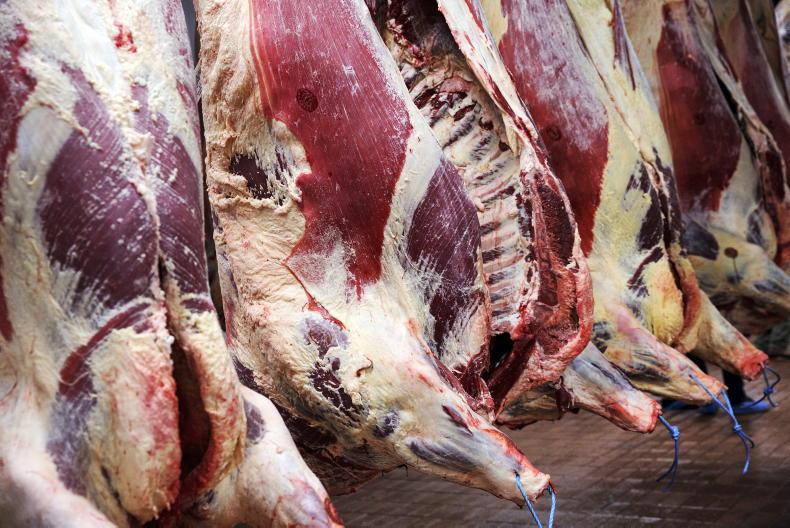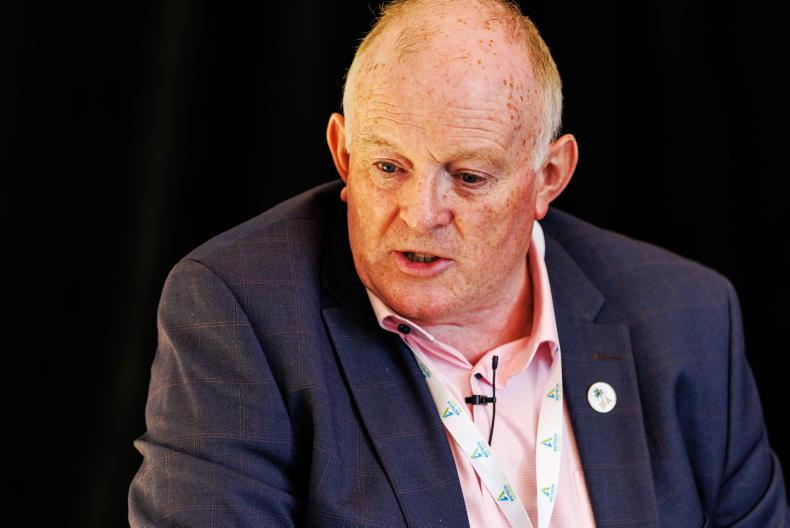The Government is open to introducing a regulator for the Irish beef sector, Tánaiste Simon Coveney has said.
Speaking to the Irish Farmers Journal, Coveney said the Government was prepared to look at introducing a beef regulator as a means of introducing more transparency into the Irish beef sector.
'End of their tether'
“A lot of farmers are at the end of their tether right now and are highly charged emotionally because their farm businesses are losing money, but we need to find a way of ending this stand-off together,” said Coveney.
“I don’t think shutting down factories will solve this problem.
"There’s a real willingness in Government to find a way forward for the beef sector and there could be potential to introduce a beef regulator for the sector,” he said.
Analysis: power of regulator will be key
The suggestion by Tánaiste Simon Coveney that the Government was contemplating the introduction of a beef industry regulator is an interesting proposal but much more detail is needed before we will know if it is any use to farmers.
The key to the success of any appointment lies in the amount of power a regulator has in bringing transparency to the supply chain in which farmers are the weakest link.
The outgoing EU Commissioner for Agriculture, Phil Hogan, is currently steering the final element of his unfair trading practices legislation, market transparency, through the EU institutions in Brussels.
This is expected to conclude prior to his departure and could be the legislative basis for the appointment of a regulator in a member state such as Ireland.
Lack of confidence
Farmers currently have a complete lack of confidence because most of the major Irish beef processors don’t publish annual accounts. Farmers have no idea of the value that is added to their cattle and sheep from the point when they are dropped off at a factory lairage until they see the finished product either on a retail shelf, in a burger chain or on a restaurant plate.
In the UK, there is a Grocery Code Adjudicator who arbitrates on issues between factory suppliers and the major supermarket groups. She does not, however, become involved in issues between farmers and the factory they supply.
In the USA there is a transparency system in place beyond the farm gate in which number of factory trades, volume and value are published on a daily basis.
Ultimately, the success or failure of any beef industry regulator appointed in Ireland depends on the legislative power it has to make factories be transparent in what happens the raw material supplied by farmers after it enters the processing system.
If an appointment is a figurehead without the power to make factories reveal their sales and profitability, then it would deliver little of benefit to Irish farmers.
Read more
Evidence that factories could be running a cartel – Corley
Factories to cease slaughtering cattle ‘indefinitely’
Live: the beef talks as they happen - talks suspended Monday evening
The Government is open to introducing a regulator for the Irish beef sector, Tánaiste Simon Coveney has said.
Speaking to the Irish Farmers Journal, Coveney said the Government was prepared to look at introducing a beef regulator as a means of introducing more transparency into the Irish beef sector.
'End of their tether'
“A lot of farmers are at the end of their tether right now and are highly charged emotionally because their farm businesses are losing money, but we need to find a way of ending this stand-off together,” said Coveney.
“I don’t think shutting down factories will solve this problem.
"There’s a real willingness in Government to find a way forward for the beef sector and there could be potential to introduce a beef regulator for the sector,” he said.
Analysis: power of regulator will be key
The suggestion by Tánaiste Simon Coveney that the Government was contemplating the introduction of a beef industry regulator is an interesting proposal but much more detail is needed before we will know if it is any use to farmers.
The key to the success of any appointment lies in the amount of power a regulator has in bringing transparency to the supply chain in which farmers are the weakest link.
The outgoing EU Commissioner for Agriculture, Phil Hogan, is currently steering the final element of his unfair trading practices legislation, market transparency, through the EU institutions in Brussels.
This is expected to conclude prior to his departure and could be the legislative basis for the appointment of a regulator in a member state such as Ireland.
Lack of confidence
Farmers currently have a complete lack of confidence because most of the major Irish beef processors don’t publish annual accounts. Farmers have no idea of the value that is added to their cattle and sheep from the point when they are dropped off at a factory lairage until they see the finished product either on a retail shelf, in a burger chain or on a restaurant plate.
In the UK, there is a Grocery Code Adjudicator who arbitrates on issues between factory suppliers and the major supermarket groups. She does not, however, become involved in issues between farmers and the factory they supply.
In the USA there is a transparency system in place beyond the farm gate in which number of factory trades, volume and value are published on a daily basis.
Ultimately, the success or failure of any beef industry regulator appointed in Ireland depends on the legislative power it has to make factories be transparent in what happens the raw material supplied by farmers after it enters the processing system.
If an appointment is a figurehead without the power to make factories reveal their sales and profitability, then it would deliver little of benefit to Irish farmers.
Read more
Evidence that factories could be running a cartel – Corley
Factories to cease slaughtering cattle ‘indefinitely’
Live: the beef talks as they happen - talks suspended Monday evening










SHARING OPTIONS